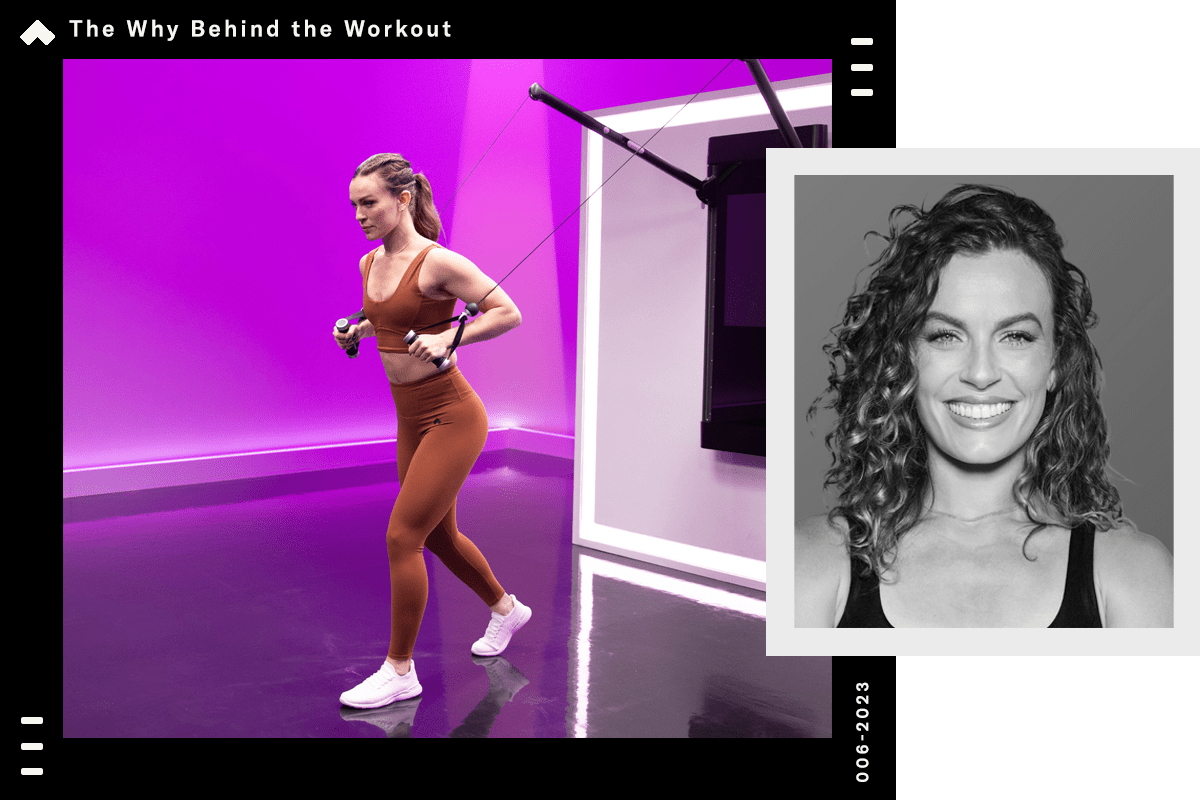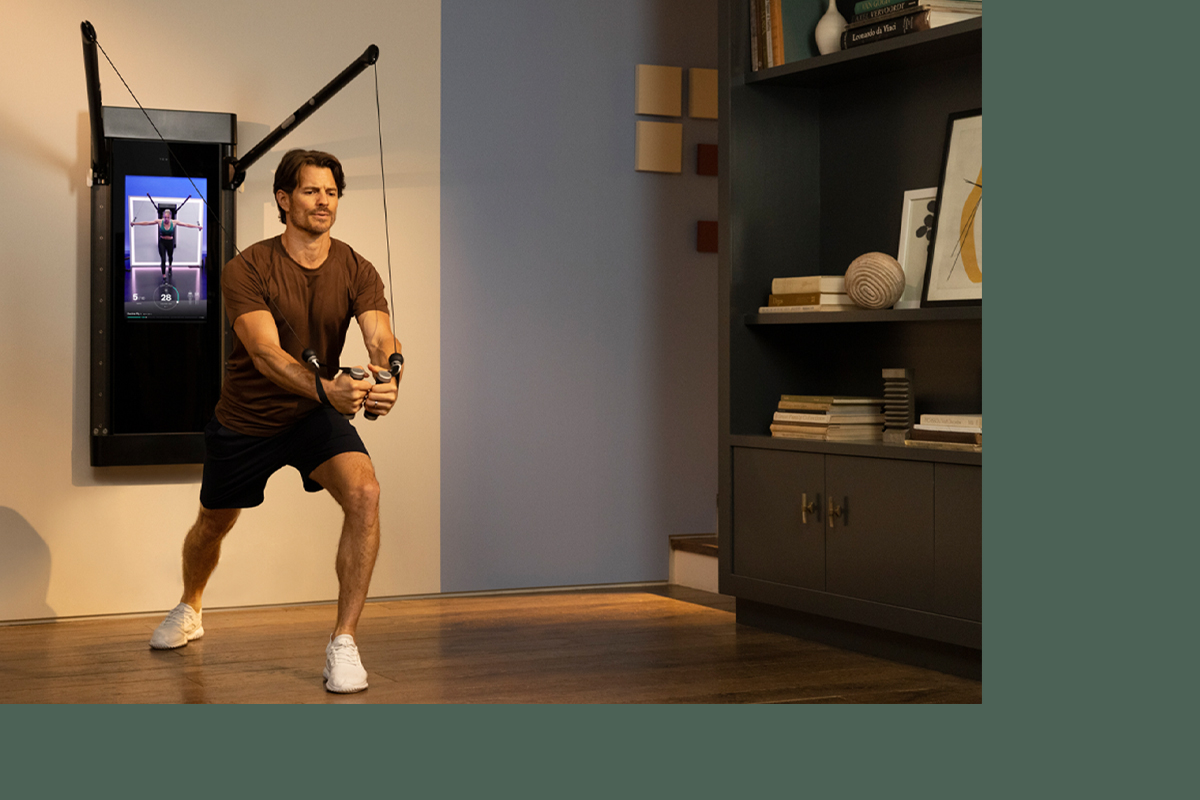In this Tonal Talk, Max Artsis, Tonal’s Coach Development Lead, shares how to take training inspiration from the pros.
Have you ever wondered what it takes to become a professional athlete? Well, in this Tonal Talk, we’ve got your answers.
Max Artsis, Tonal’s Coach Development Lead, spent years at Nike as a Master Trainer and has more than a decade of training and working with athletes. He’s going to walk you through three of the most important lessons he’s learned from training elite athletes.
These lessons are not just for professional athletes — everyone can start implementing them in their daily lives to train like a pro!
1. Your best ability is availability
“We need to do a better job of understanding progressive overload. [There’s a tendency to think] let’s do more, let’s add more, and let’s keep doing more. We need to realize that stress is not something we can compartmentalize — it’s cumulative. If we stress the body too little, it withers and dies, and if we stress the body too much, it crumbles from doing too much.”
“When I’m thinking about taxes, worrying about paying rent, then I’m arguing with someone, and on top of that, I’m lifting weight? Those are all forms of stress on the body. We need to understand that all of this has a cumulative effect on the body. We have to find the sweet spot of stress so that way we’re continuing to adapt one percent up rather than putting too much on the body too soon.”
“When you have a load that is greater than the capacity you can handle, that ultimately leads to a breakdown or an injury. This is a long journey. It’s a lifetime goal, not something that’s going to end in six weeks. Don’t try to accomplish everything in a workout. If you’re doing this right, hopefully, you’ve got plenty of opportunities.”
“As a coach, I would ask you to focus on one thing for the duration of an entire workout. We can focus on other things that we can get better at too, but if I talk about everything, I talk about nothing. Try focusing on one thing, for example, making your hinge movement better for an entire workout. Tell yourself, I’m going to be okay with whatever else happens today, but I’m going to work on perfecting my hinge.”
“Next time, you can work on getting your bicep by your ear during an overhead press, or whatever it is. Saying I’m only going to focus on this one thing allows us to hone in and master something.”
2. Harness the power of mindset
“The reason why most pro athletes are pro athletes — other than their abilities and their hard work — is because of what happens between their ears.”
“The person that talks to us the most is ourselves, so it’s important to become aware of our self-talk. Are we setting ourselves up for success, or are we setting ourselves up for failure with sabotaging talk before we even start? That won’t change overnight, but recognizing patterns is something that we can start today. So it’s important to begin understanding the power of neutral thinking — good things will happen, and bad things will happen, and that’s okay.”
“The power of neutral thinking has been a key pillar for almost every athlete with whom I’ve worked. It’s just understanding that it is what it is, and the glass doesn’t have to be half empty or half full, it could just be half a glass, and that’s okay.”
“Every single one of my athletes also has a gratitude journal. Our brain is an information processor, and it processes the information that we put into it. So if we actively look for things to be grateful about and things that are positive in our lives subconsciously, we’re going to start looking for that in other areas of life. I can’t tell you how amazing the transition has been for some athletes the second they focus on internal gratitude.”
3. Think about how you learn over what you learn
“How you learn is significantly more important than what you’re learning. Some athletes are motivated by success, others by the fear of failure, teamwork, camaraderie, or rivalry with someone else.”
“So I think it’s really important for people to understand that and tap into what resonates with them. For example, a cue from a coach that really resonated. Start to look at Tonal coaches and understand which coach speaks your language and what patterns of theirs will lead you to ultimately lift more weight and get in better and healthier shape.”
“We often get so caught up in the numbers and what we’re doing inside the gym that we forget why we’re doing this in the first place. For an athlete, if what they’re doing doesn’t translate to their sport, they shouldn’t be doing it. For the day-to-day person who works out, we must think about why we are lifting. Is it to be a better father, mother, or friend? Is it to be able to play recreational sports? Or is it so you won’t be in pain when you get out of bed?
What is the reason behind what you’re doing? That should form 80-90 percent of what you’re doing while working out.”
Editor’s Note: This interview has been edited and condensed for clarity. Tonal Talk is a weekly Facebook Live interview series highlighting stories of real strength from within the Tonal community.


